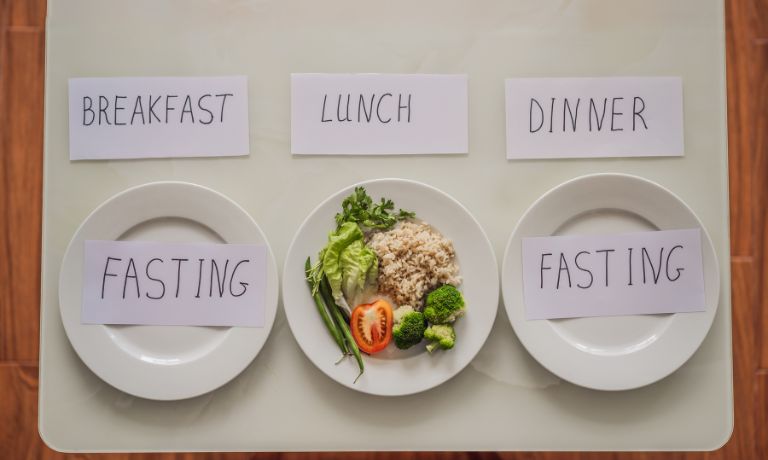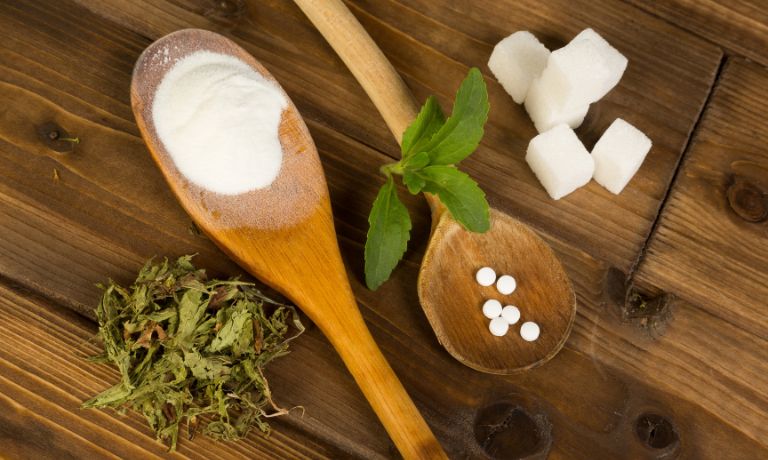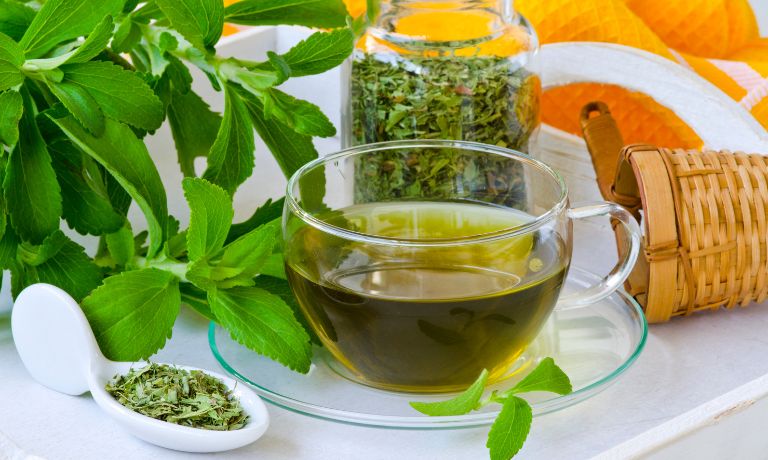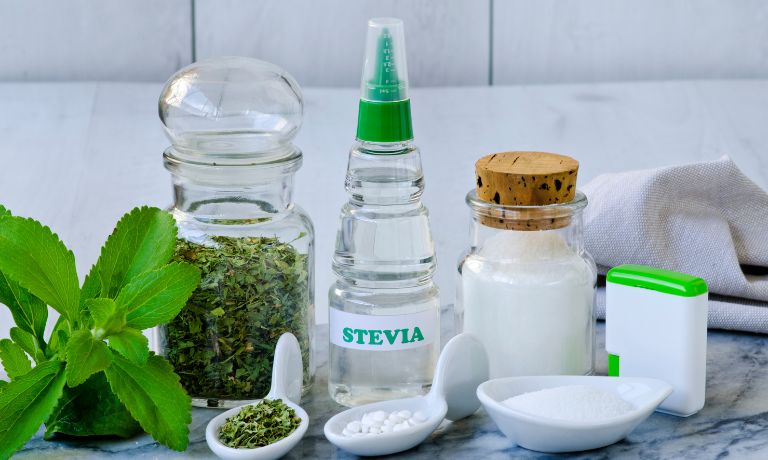Today we’ll examine whether does stevia break a fast and how it might fit into your diet when trying to lose weight. We’ll also discuss any associated health concerns with this widely available sugar substitute.
Whether you’re looking for an affordable way to reduce added sugars in your daily routine or giving intermittent fasting a go, our comprehensive overview of Stevia will give you all the answers to does stevia break a fast.
What Is A Fast?
A fast is an abstinence from certain food and drinks, usually for spiritual or health-related reasons. It can last anywhere from one day to several weeks or even months.
During a fast, individuals will typically consume only liquids like water, juice, tea, or coffee to detoxify the body and allow for greater clarity of the mind.
Fasts can serve as a way to focus on spiritual practice, to give thanks and show gratitude towards God, or simply to cleanse the body of toxins and restore balance. Depending on the type of fast, fasting can also be used for weight loss.
Why Do People Do Fasting?
Fasting is a practice that has been around for centuries, and it’s still popular today. People fast for various reasons — spiritual, some health-related, but most commonly, to jumpstart weight loss.
Fasting can help you reduce caloric intake and cleanse your body of toxins, improving overall health and increasing energy. Fasting has even been linked to lower stress levels and better cognitive performance, among other potential benefits.
When done correctly, fasting can help you manage your cravings for unhealthy foods, allowing you to maintain a healthy lifestyle. Regular fasting is a great way to stay refreshed, lose weight, and improve overall well-being.

Fasting process
What Is Stevia?
Stevia is a low-calorie and natural sweetener extracted from the leaves of the Stevia rebaudiana plant. It has been used for centuries in South America as a sweetening agent or herbal medicine. Because of its ability to add sweetness without calories, stevia has become increasingly popular as an alternative to other artificial sweeteners and sugar.
Stevia comprises two components: Rebaudioside A (Reb-A) and stevioside. Both are naturally occurring compounds found in the Stevia rebaudiana plant, but Reb-A has been identified as having a sweeter taste than stevioside. As a result, Reb-A is the form of stevia most often used in food and drink products.
The taste of stevia is significantly different from other artificial sweeteners as it has more of an aftertaste that some people describe as licorice-like or bitter. Despite this, many people prefer stevia to other alternative sweeteners due to its natural origin, low-calorie count and potential health benefits.
In addition to its use as a sugar substitute, stevia has been used for many centuries as a herbal medicine. It is believed to have antioxidant properties and may help to lower blood pressure or reduce the risk of certain diseases like diabetes. However, more research is needed to confirm these potential benefits.
Given its natural origin, low-calorie count and potential health benefits, stevia is becoming increasingly popular as a sugar substitute for those seeking an alternative to traditional sweeteners.

Stevia
Do You Consider Stevia To Be A “Natural Sweetener”?
The answer to this question is more complex than yes or no. The term “natural sweetener” can mean different things to different people, and the definition of natural varies depending on who you ask.
Stevia is derived from a plant native to South America, making it natural. However, the extraction process of stevia involves additional compounds, such as chemicals that are not natural. So, the final form of the sweetener you buy in stores may contain some ingredients that were created synthetically, and this could be seen as an argument against it being “natural”.
Additionally, many nutritionists believe that any artificial or added sugars should be avoided in a healthy diet. So, even though Stevia is natural in origin, it may not always be the best choice for people trying to reduce their consumption of added sugars.
Ultimately, whether or not you consider stevia a “natural sweetener” comes down to your beliefs and preferences. However, it is important to consider the ingredients used in the production process before using stevia as a regular sweetener for your diet.

Stevia or Sugar
How Does Your Body Process Stevia?
Your body processes stevia differently than it does other sweeteners. Once it is digested, stevia is broken down into components, including glucose, fructose, and Rebaudioside A (Reb A).
The small intestine metabolizes glucose and fructose and then sends them to the liver, distributing them throughout the body for energy use.
The main component of stevia, Rebaudioside A (Reb A), is absorbed directly into the bloodstream and does not require digestion or metabolism as other sweeteners do. It passes through the digestive system unaffected and enters your cells, acting like an antioxidant that helps regulate blood sugar levels.
This unique way of processing stevia is a great alternative to other sweeteners, as it provides sweetness without raising blood sugar levels or adding unwanted calories.
It has also been found to have protective effects on your teeth and digestive system, making it a popular choice for those looking to reduce their sugar intake.
Stevia’s Health Benefits
Stevia has been used for centuries in South America as a herbal medicine and sugar substitute. More recently, it’s become popular worldwide as a healthier alternative to artificial sweeteners and processed sugars. Studies have shown that stevia can provide several health benefits, such as improved blood sugar control, lower blood pressure, and even weight loss.
Stevia has also been found to have antioxidant properties that may help protect against certain diseases. Studies suggest that stevia’s antioxidants can fight off free radicals and reduce inflammation. This could be beneficial in reducing the risk of chronic conditions like heart disease, diabetes, and cancer.
Additionally, studies have found that stevia may help with dental health. It is effective at fighting tooth decay and plaque and preventing cavities. This is because it contains compounds called glycosides which can prevent bacteria from forming on teeth and breaking down enamel.
Finally, stevia has also been linked to improved skin health. Studies suggest it can help brighten the complexion, reduce wrinkles, and improve elasticity. This is due to its antioxidant properties and ability to control blood sugar levels which helps reduce inflammation in the body.

Stevia infusion
Does Stevia Break A Fast?
Whether Stevia breaks a fast depends on the type of fasting you are doing and the type of Stevia you are using. For instance, if you observe an intermittent fasting protocol, consuming Stevia may be acceptable if it contains no added sugars or calories. However, consuming Stevia would break the fast if you engage in a full fast due to its sweet taste and potential calorie content.
It is important to note that even though all-natural forms of Stevia do not contain added sugars or calories, they still possess a sweet taste that can disrupt the purpose of a fast. For this reason, it is best to avoid using Stevia while fasting. If you decide to use Stevia during your fast, check the label for added sugars and calories, as some forms of Stevia may contain these ingredients.
Ultimately, the decision on whether or not to consume Stevia while fasting is up to the individual. If you are uncertain, avoiding using Stevia while fasting is best and opt for other natural sweeteners such as honey or maple syrup instead.
How Should You Use Stevia During A Fast?
Stevia is a great sweetener to use during fasting periods. It can be used instead of sugar to add sweetness and flavor to foods, drinks, and desserts. Since stevia is calorie-free and does not affect blood glucose levels, it is ideal for people following an intermittent or extended fast.
When using stevia while fasting, it is important to remember that the sweetness of stevia can be highly concentrated. It can be up to 200 times sweeter than sugar, depending on the brand. Start with a very small amount and adjust as needed based on taste preference. Stevia can also sweeten hot and cold beverages like tea, coffee, and smoothies. It can also sweeten desserts or snacks such as oatmeal or yogurt.
Remember to keep track of the total carbohydrate intake while fasting since some brands of stevia contain additional ingredients that may add carbohydrates. In any case, it is important to check with a physician or nutritionist before starting any type of fasting, including intermittent or extended.
ALSO READ: Does Lemon Water Break A Fast? Detailed Answer
What Negative Effects Does Stevia Have?
While most research agrees that stevia has no significant short-term negative effects, there are certain long-term concerns related to it.
One issue is that some people may experience mild allergic reactions when consuming stevia products.
Additionally, studies indicate that consuming stevia in large amounts can lead to problems with kidney function and reduced fertility in men.
It’s important to note that these findings are largely based on animal studies, and more research is needed to determine if stevia could have the same effects in humans.
Finally, some people find stevia products have a bitter aftertaste which others may find off-putting.
Artificial Sweeteners To Avoid During A Fast
Artificial sweeteners pose a few special considerations if you are fasting. While they may seem appealing to satisfy cravings, many of them can cause negative side effects that may hinder the effectiveness of your fast.
It is generally best to avoid artificial sweeteners while fasting, as they can cause digestive issues such as bloating, cramping, and gas.
Some of the more common artificial sweeteners that should be avoided are aspartame (Equal), acesulfame potassium (Sweet One or Sunett), sucralose (Splenda), saccharin (Sweet’N Low), and neotame (Newtame).
Furthermore, these sweeteners may also contain sugar alcohols such as mannitol, sorbitol, xylitol, and maltitol.

Stevia products
Common Mistakes To Avoid About Does Stevia Break A Fast
In this section, we’ll explore common mistakes people make about this topic and summarise what can be used as a sweetener while fasting.
- Not understanding the type of sweetener: Although it is a natural sweetener, stevia isn’t considered keto-friendly due to its carbohydrate content. This means that if you are following a strict ketogenic diet and fasting plan, it’s not recommended to break your fast as it will cause increases in blood sugar levels; therefore, it could be better for those trying to achieve ketosis.
- Not reading the label: Some stevia products can contain additional ingredients like fillers, preservatives, and other sweeteners (like sugar or maltodextrin). Be sure to read the label of any product you use as an alternative sweetener while fasting to ensure that it does not contain any of these ingredients, as they can interfere with your fast.
- Not measuring properly: Even if you are using a product that is 100% stevia, it’s important to measure how much you’re consuming. Too much stevia can lead to unpleasant side effects like nausea and bloating.
FAQs
Can I Use Stevia During A Fast?
Yes, you can use stevia during a fast. Stevia is an all-natural sweetener made from the stevia plant leaves and has no impact on blood sugar levels or insulin response. It can add sweetness to your food without breaking your fast.
Does Erythritol Break A Fast?
No, erythritol does not break a fast. Erythritol is an artificial sweetener derived from plants and does not affect blood sugar or insulin levels. Therefore, it should not interfere with your body’s natural fasting process.
Does Sucralose Break A Fast?
No, sucralose does not break a fast. Sucralose is an artificial sweetener made from sugar and has been shown to have no impact on blood sugar levels or insulin response.
Can I Have Stevia-Sweetened Coffee While On An Intermittent Fast?
Yes, you can have stevia-sweetened coffee while on an intermittent fast. Stevia does not break your fast and will only positively affect your results. However, adding other ingredients to your coffee, like milk or cream, can break your fast.
Can Stevia Break A Religious Fast?
No, stevia does not break a religious fast. Because it contains no calories or carbs, it won’t interfere with your fasting period, and you can still reap the benefits of the spiritual practice.
Does Stevia Break Ketosis?
No, stevia does not break ketosis. It is a recommended sweetener for keto because it contains zero calories and zero carbs. It won’t affect your blood glucose levels or insulin response, ensuring you stay in ketosis.
Does Stevia-Sweetened Lemon Water Break A Fast?
No, drinking stevia-sweetened lemon water during a fast won’t break the fast. Stevia will not interfere with your fasting goal of lowering insulin levels and triggering other beneficial metabolic changes.
Can Stevia Cause An Insulin Rise?
No, stevia does not cause an insulin rise. Studies have found that stevia does not affect blood sugar or insulin levels, even when consumed in large amounts. Therefore, it is safe to consume during a fast without the risk of breaking it.
Can Stevia Prevent Autophagy?
No, stevia will not prevent autophagy. Autophagy is a natural process that occurs in the body and is essential for cell regeneration and longevity. Stevia does not interfere with this process, so it will not disrupt or prevent autophagy.
Can Matcha Combine With Stevia Break A Fast?
No, you can combine matcha powder with stevia if desired. This combination will not break your fast as long as you are mindful of the number of calories consumed and ensure that it is within all the restrictions set forth by your fasting protocol.
Do Stevia And Almond Milk Break A Fast?
No, neither stevia nor almond milk will break a fast. Both are low in calories and contain no carbohydrates or proteins that could kick-start your digestion and end the fasting period. You can safely consume both during a fast without breaking it.
Conclusion: Does Stevia Break A Fast?
Now you should know does stevia break a fast. Consuming Stevia while fasting may or may not break the fast depending on the type of fasting you are doing and the type of Stevia you are using.
All-natural Stevia without added sugars or calories do not possess any caloric content and should be avoided during full fasting protocols due to its sweet taste.
Therefore, if you are uncertain, avoiding using Stevia while fasting is best and opt for other natural sweeteners instead.
Ultimately, the decision on whether or not to use Stevia while fasting is up to the individual. Check labels for added sugars and calories before using Stevia during a fast.

